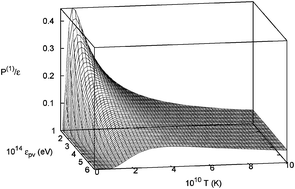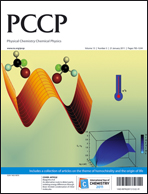Quantum stochastic resonance in parity violating chiral molecules
Abstract
In order to explore parity violating effects in chiral molecules, of interest in some models of evolution towards homochirality, quantum stochastic resonance (QSR) is studied for the population difference between the two enantiomers of a chiral molecule (hence for the optical activity of the sample), under low viscous friction and in the deep quantum regime. The molecule is described by a two-state model in an asymmetric double well potential where the asymmetry is given by the known predicted parity violating energy difference (PVED) between enantiomers. In the linear response to an external driving field that lowers and rises alternatively each one of the minima of the well, a signal of QSR is predicted only in the case that the PVED is different from zero, the resonance condition being independent on tunneling between the two enantiomers. It is shown that, at resonance, the fluctuations of the first order contribution to the internal energy are zero. Due to the small value of the PVED, the resonance would occur in the ultracold regime. Some proposals concerning the external driving field are suggested.

- This article is part of the themed collection: Homochirality and the origin of life

 Please wait while we load your content...
Please wait while we load your content...